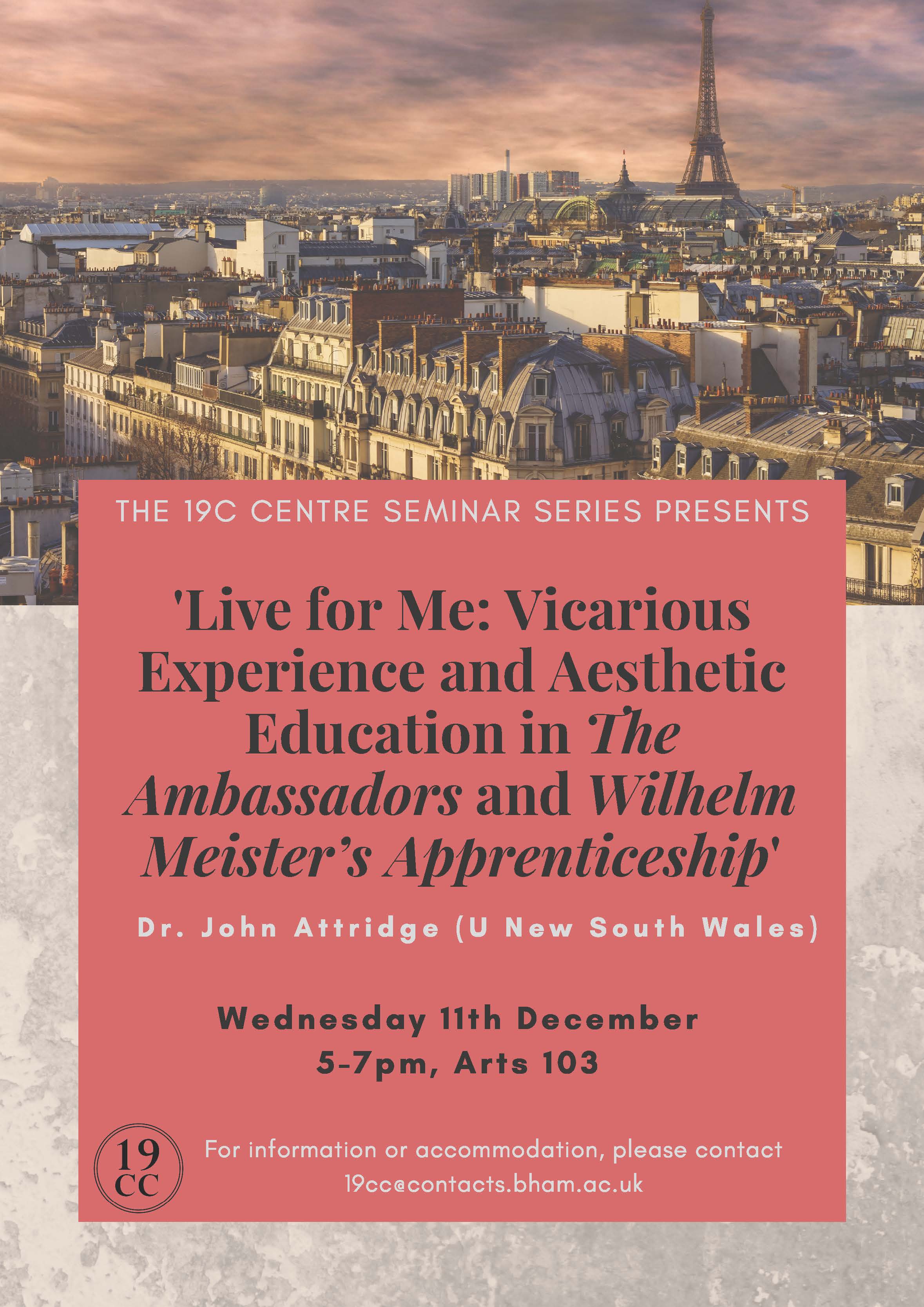19C Seminar Series: Dr. John Attridge (U New South Wales), ‘Live for Me: Vicarious Experience and Aesthetic Education in The Ambassadors and Wilhelm Meister’s Apprenticeship’, 5-7pm, Arts 103

A capacity for vicarious experience is one of Lambert Strether’s most celebrated characteristics, apparent not only in his famous injunction to Little Bilham to “Live all you can”, but also in his more general attitude to Chad Newsome’s life in Paris, which he proposes, at one point, to regard as a substitute for his own youth. This incorrigible tendency to live his life through the experiences of others might seem to conflict with the goals of Bildung or aesthetic education, since, if nothing else, the experiences that constitute such an education ought surely to be one’s own. But although the Bildungsroman as a genre is often thought to be concerned with the formation of an individual subject, the concept of Bildung articulated by Goethe and his Weimar associates in the 1790s in fact assigns a particular importance to the idea of vicarious experience. In the archetypal Bildungsroman, Wilhelm Meister’s Apprenticeship, Wilhelm’s education is not complete until he can see himself as a “representative of the species”, in Schiller’s phrase, and thus seek consolation for his own limitations in the achievements of other human beings. In James’s “Live all you can”, this paper argues, we can hear an echo of the “Gedenke zu leben!”—“Remember to live!”—which adorns the uncle’s tomb in a key scene of Wilhelm Meister. Taking this resonance as a point of departure, I suggest that James’s portrait of vicarious fulfilment is not a deviation from the tradition of the Bildungsroman, but a realisation of one of the genre’s originary possibilities.
